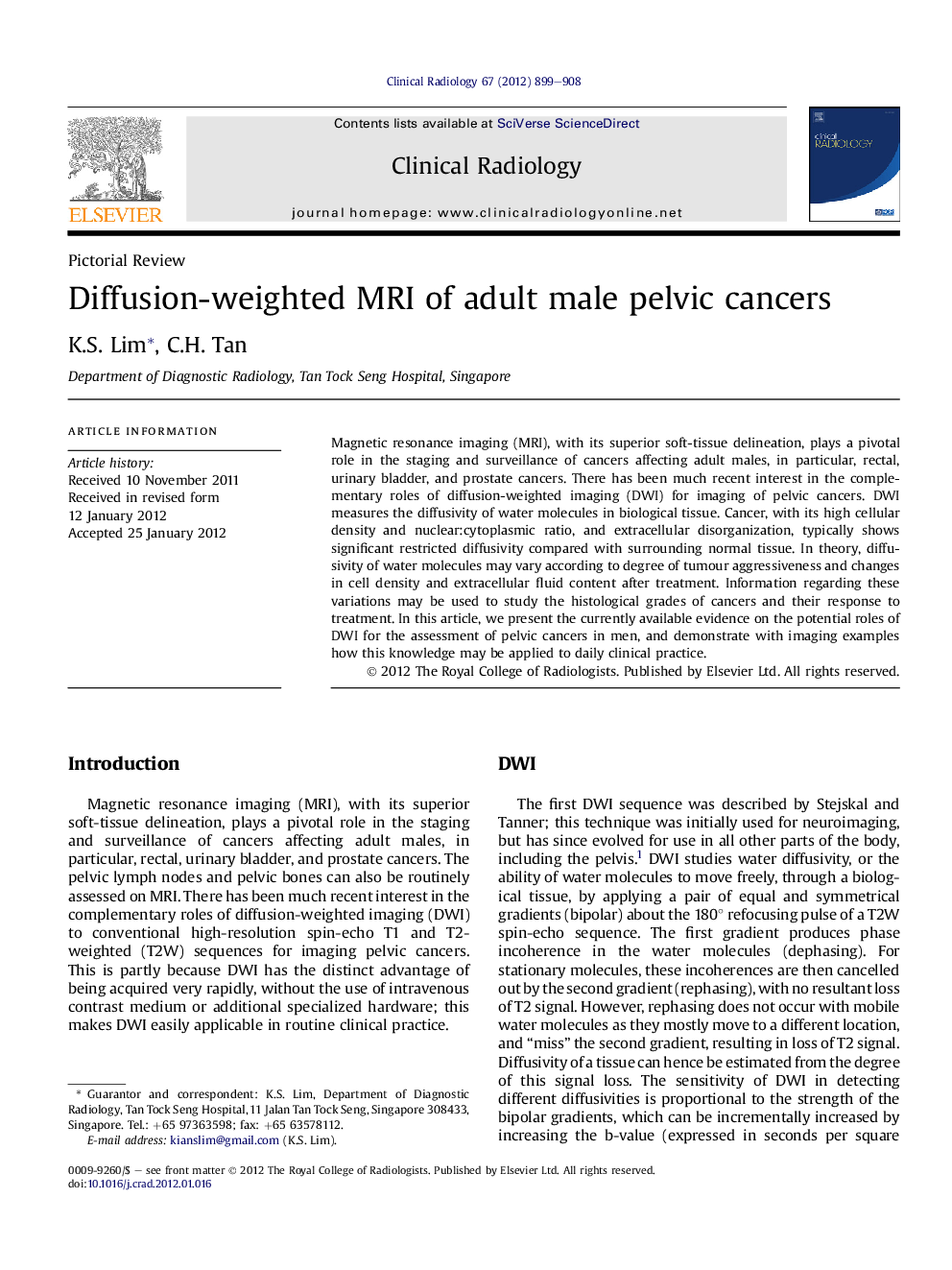| Article ID | Journal | Published Year | Pages | File Type |
|---|---|---|---|---|
| 3982001 | Clinical Radiology | 2012 | 10 Pages |
Magnetic resonance imaging (MRI), with its superior soft-tissue delineation, plays a pivotal role in the staging and surveillance of cancers affecting adult males, in particular, rectal, urinary bladder, and prostate cancers. There has been much recent interest in the complementary roles of diffusion-weighted imaging (DWI) for imaging of pelvic cancers. DWI measures the diffusivity of water molecules in biological tissue. Cancer, with its high cellular density and nuclear:cytoplasmic ratio, and extracellular disorganization, typically shows significant restricted diffusivity compared with surrounding normal tissue. In theory, diffusivity of water molecules may vary according to degree of tumour aggressiveness and changes in cell density and extracellular fluid content after treatment. Information regarding these variations may be used to study the histological grades of cancers and their response to treatment. In this article, we present the currently available evidence on the potential roles of DWI for the assessment of pelvic cancers in men, and demonstrate with imaging examples how this knowledge may be applied to daily clinical practice.
